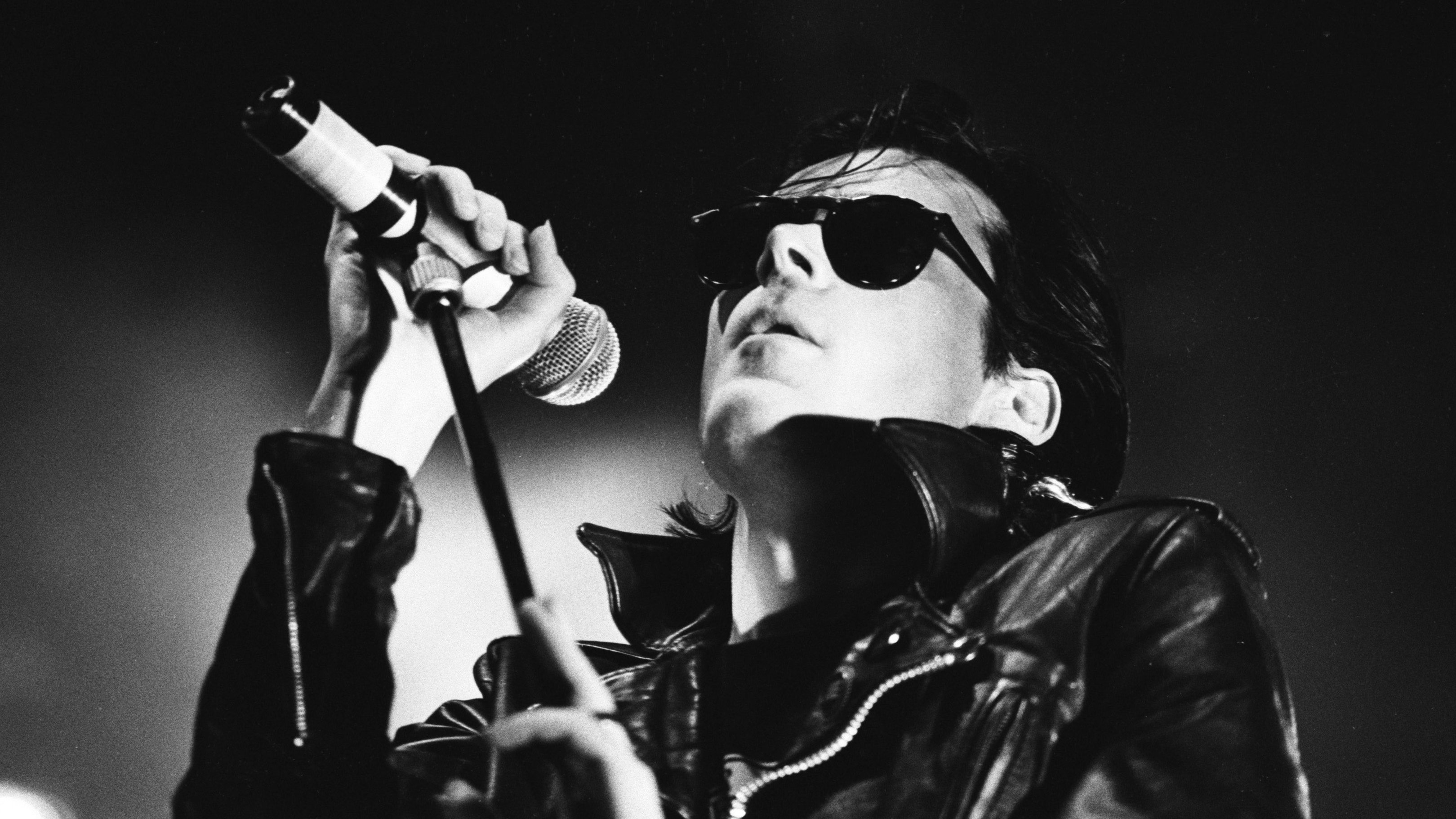This feature first appeared in the 2012 special, The Cure & The Story Of The Alternative 80s.
Andrew Eldritch has always been an enigma. As the leader of The Sisters Of Mercy, he cultivated a powerful mystique and created some of the greatest and most influential rock music of the 1980s. But as he says now, “I never felt I was destined to be a rock’n’roll star.”
Born Andrew William Harvey Taylor in the small town of Ely in Cambridgeshire on May 15, 1959, Eldritch formed The Sisters Of Mercy in Leeds in 1980 and has remained the group’s sole constant and figurehead ever since. With the albums First And Last And Always (1985) and Floodland (1987), the Sisters became known as the definitive goth rock band – a term that Eldritch loathes.
But in the early 90s, when he believed that his singular artistic vision was being compromised, Eldritch declared that The Sisters Of Mercy were “on strike” against their record company. And with the maverick sensibility that has informed his entire career, he simply stopped making records. In 2012, the Sisters remain active as a touring band, but Eldritch has steadfastly refused to release any of the new music he has written and recorded in recent years. Now, as always, Andrew Eldritch does as he pleases, and nothing else.
What is the current status of The Sisters Of Mercy?
Pretty good. We’re addressing a slight technical problem, inasmuch as the person who manned our bass and drum section for the past few years has moved on.
You mean the programmer of your trusty drum machine, Doktor Avalanche?
Yes, that big part of equipment is currently looking for a new attendant – a nurse to the Doktor. Otherwise, we’re good. We rock like a motherfucker. Which is nice.
It’s been 22 years since the last Sisters album, Vision Thing. Are you any closer to releasing a new album?
We record bits and pieces from time to time, but we never get around to finishing them, so I don’t think a new album is uppermost in our thoughts. Making an album requires a lot of time and nervous energy and a little bit of money. And I’m not sure my lads want to be tied up for that long doing that – with no prospect of recompense at the end of it. We’re one of the few bands that can sell concert tickets without having to put out an album, so the usual motivation doesn’t apply. With the music industry imploding, it’s hard to see why putting out an album would make much sense. And I don’t have the existential need to do so.
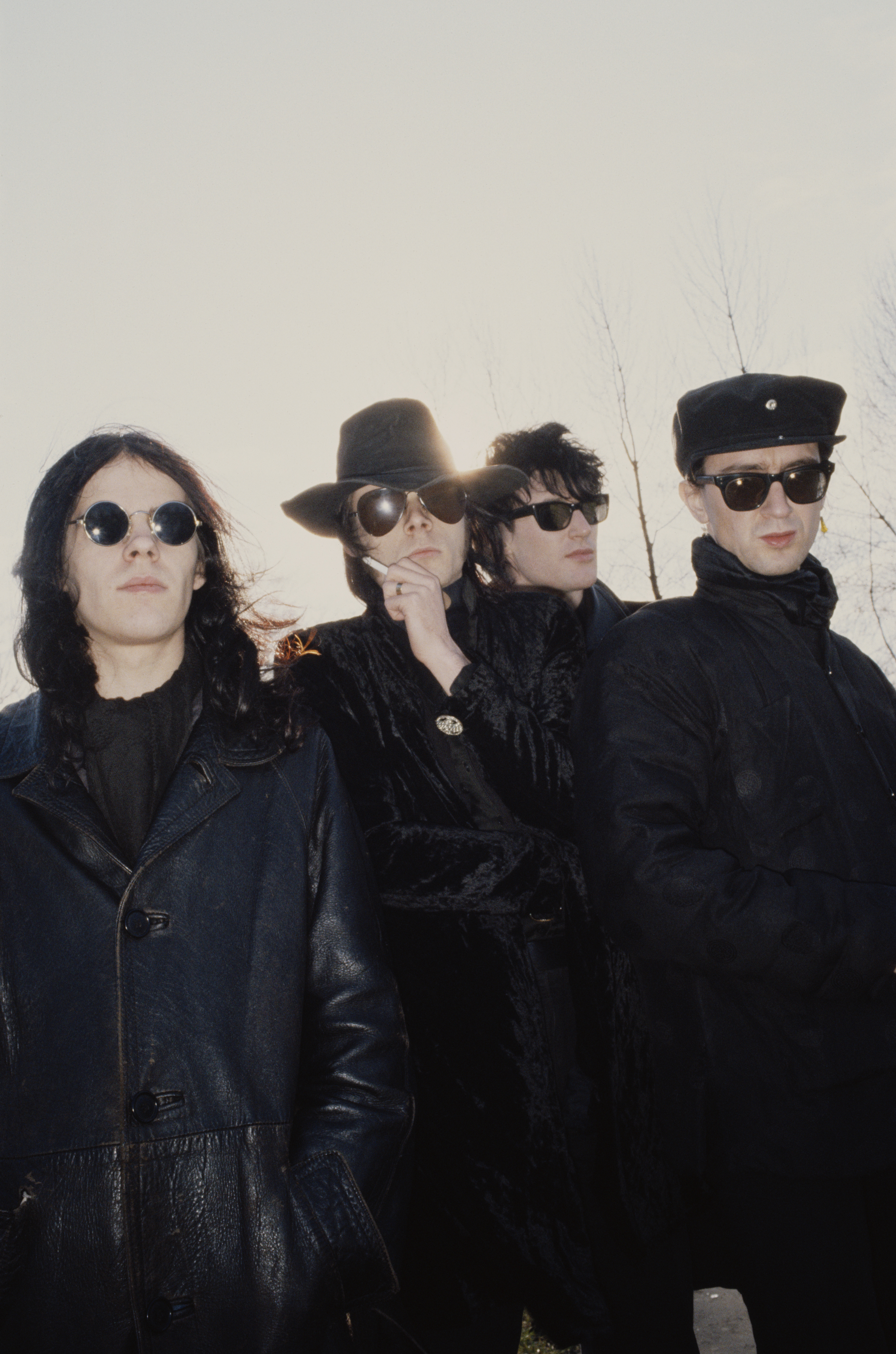
Meaning what?
I don’t make music for you. I make it for me.
But if you’re creating new music, don’t you want it to be heard?
At concerts we always play new songs, and not always the same ones. But I think there’s a big difference between creativity and the aspect you refer to, which, in my unkinder moments, I might regard as simply preening. I’m not much of an extrovert.
Surely the Sisters fans that come to the gigs and hear the new songs must tell you they’d love to hear a new album, though?
It sounds like work, and I don’t like work. Work is stuff you do because people pay you to do it – stuff you wouldn’t do otherwise. I’m perfectly happy to make music. I’m not nearly as enamoured with the whole releasing process, having done it a few times. It was dismal.
When did you last write a new song?
The last time I decided definitively that a song was finished and untouchable was 2010. I’ve written a lot since then, but I’m still tinkering with them. I like to tinker. With computers, information is much more fluid now. A file is infinitely modifiable. So it’s a bit hard to decide when something’s finished. That fluidity does tempt me to be very absorbed with tinkering, which I find a very fulfilling process in itself.
So you’re happy just to be tinkering away, cut off from the world?
Look, I love my cats but I don’t take them for walkies so that other people can look at them. Personally, if I were George Lucas I wouldn’t have released the last three Star Wars films. And the world would have thanked me for not showing them to anybody. I’m not suggesting my work is in that league of awfulness, but you get my point. There’s a difference between being a musician and being a pop star. I think that answers your question about how I would define creativity.
Is your life busy?
Yes it is; watching a lot of dodgy Japanese films, playing with the cats, watching the cricket. I live a fairly privileged life in that I made my money before the music industry imploded. So I can afford to do that. The Sisters Of Mercy is actually a trust, and I’m on a yearly salary as a consultant to the trust. I suppose The Rolling Stones might also be a trust. And Pink Floyd.
If you needed the money, would there have been another Sisters Of Mercy album by now?
Yes. Although in the current climate, I don’t think that would have made much difference financially. You can’t make money putting out records.
But the band makes good money touring?
It does. And I like being in a band. The pressure is shared. I think everybody should want to be a part of something bigger than themselves.
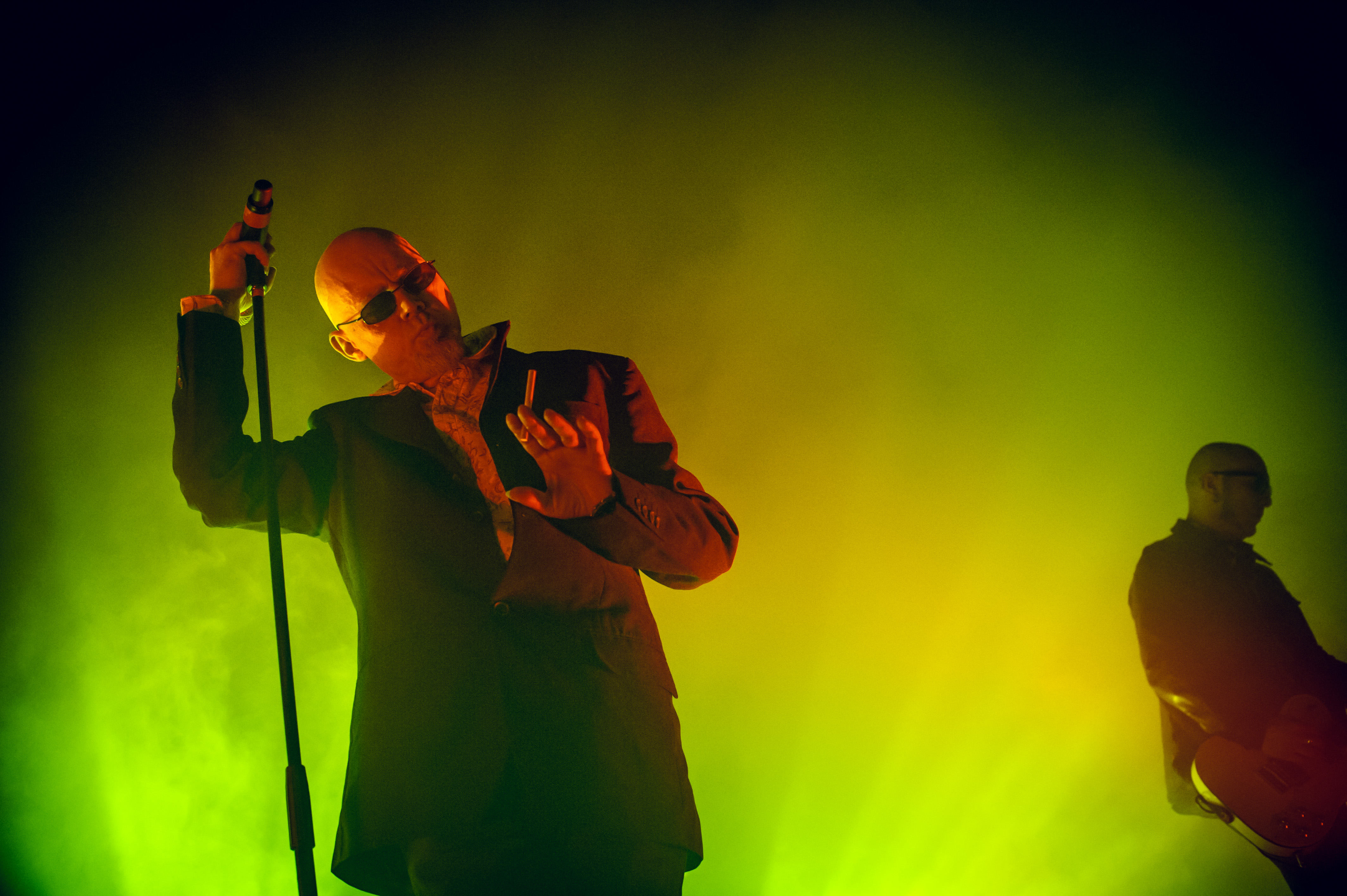
Where do you live now?
I’ve got a place by the sea, in Europe. But I can’t tell you where. I’m still very European in my outlook. I’m lucky that I’m very good at languages. So I can move around with impunity.
Didn’t you study languages at Oxford University?
Before I dropped out. I wanted to change to learn Chinese at Oxford and they wouldn’t let me, so I moved universities to Leeds. At that time there were only six universities in the country that taught Chinese. That’s how long before the Chinese boom it was.
What are your earliest memories of music as a child?
When I was three, my parents had a 45rpm single of My Boy Lollipop by Millie. My family didn’t have many records, so I soon became terminally annoyed by that song. I don’t hear much of that record reflected in my current oeuvre, so maybe the whole of my life has been a reaction to My Boy Lollipop.
As a schoolboy in the early 1970s, what music did you love?
As in every school, there was a division between those who liked The Beatles and those who liked The Rolling Stones, and those who liked Black Sabbath and those who liked [Pink Floyd’s] Ummagumma.
Were you on the Stones/Ummagumma side?
I was. I should have been on the Stones/Black Sabbath side, but I wasn’t. Ummagumma is a prime example of drippiness. I love the Floyd, but not that one.
And why the Stones over The Beatles?
I think rock’n’roll should scare your mother.
What other music was influential for you?
Glam, glam and more glam. Gary Glitter, Slade, T. Rex. All the way down to Mud. Tiger Feet is pretty good.
Before you formed The Sisters Of Mercy, you were a drummer in a couple of Leeds punk bands.
Just two. They didn’t even have names, and we certainly didn’t play in public.
When did you first start using the name Eldritch?
When I started performing. I had to change my name because of the dude in Duran Duran called Andrew Taylor.
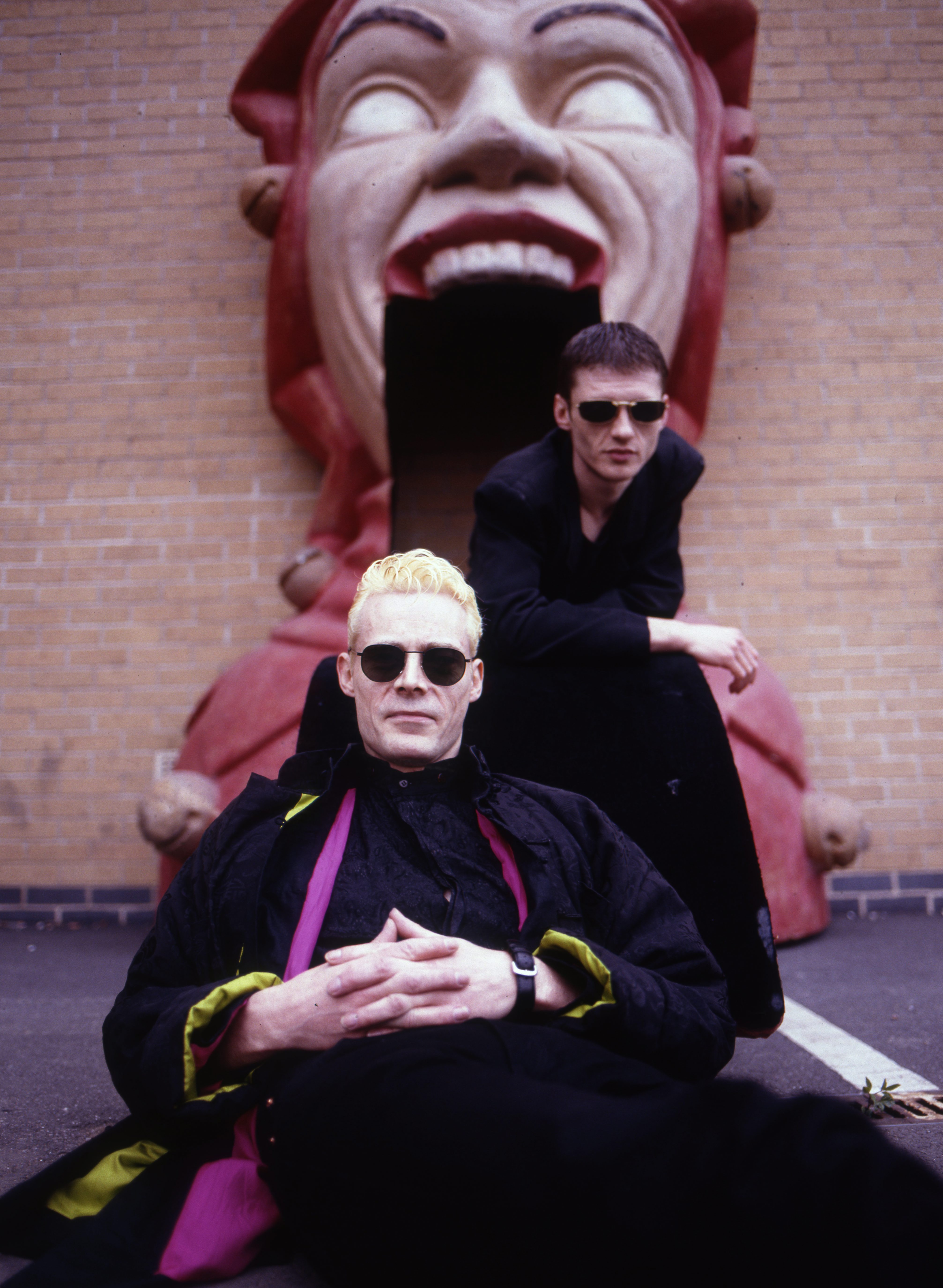
- The Outer Limits: Fields Of The Nephilim
- Philip Anselmo: Why I Love The Cure
- Andrew Eldritch: Sisters of Mercy will make another album if Trump is elected
- Sisters Are Doing It For Themselves, The Mission's Golden Years
The word ‘eldritch’ is defined as strange and otherworldly. Is that why you chose it?
I don’t think I mulled it over much at the time. People say its’ a reference to Lovecraft and his ilk, but it’s actually a reference to Philip K Dick and his ilk.
From the start, did you have a master plan for the The Sisters Of Mercy?
We just wanted to get played on the radio – once. The Holy Grail was to get on the John Peel show. I’m a thug, musically – self-taught. And at first we were awful, but being awful helps you to be different.
You were idiot savants?
Oh no. That implies a level of craft that we definitely did not display.
The Sisters’ debut album, First And Last And Always, is regarded as a classic of the era – how do you feel about it now?
I like some of the songs on the first album. I’m just not keen on the production or the style of playing or my singing – particularly my singing.
You wrote all of the lyrics for that album, but very little of the music. Why?
It made sense at the time. If someone has written something and I like it, I’m happy to sing to it.
Wayne Hussey played guitar on that album. How important was his role in shaping the Sisters’ sound?
He was only in the band for a year. We’ve been going for 30 years. Draw your own conclusions from that.
But he wrote a lot of the band’s key early songs, such as Black Planet and Walk Away. It must have been a big loss to the Sisters when he quit to form The Mission?
Wayne wanted to front his own band. I don’t blame anybody for wanting that. And at the time it seemed like a good idea on both sides.
In the 80s, which bands did you feel an affinity with?
We thought we belonged to a bloodline that stretched back through glam to the Stones to Gene Vincent. So in interviews we’d be more likely to mention the Stones than The Psychedelic Furs. I think in our early interviews we name-checked the same people we’d name-check now: Motörhead, Hawkwind, Suicide, The Fall. But the only record I could say has had a direct influence on me – ever – is The Psychomodo by Cockney Rebel [released in 1974]. I love the way the language gets twisted in that.
Is that the essence of your own lyrics – twisting the language?
Well, it seems to me that every time I refer to anything vaguely spiritual, I’m actually meaning something down and dirty. And every time I refer to something down and dirty, I’m usually getting a bit highfalutin.
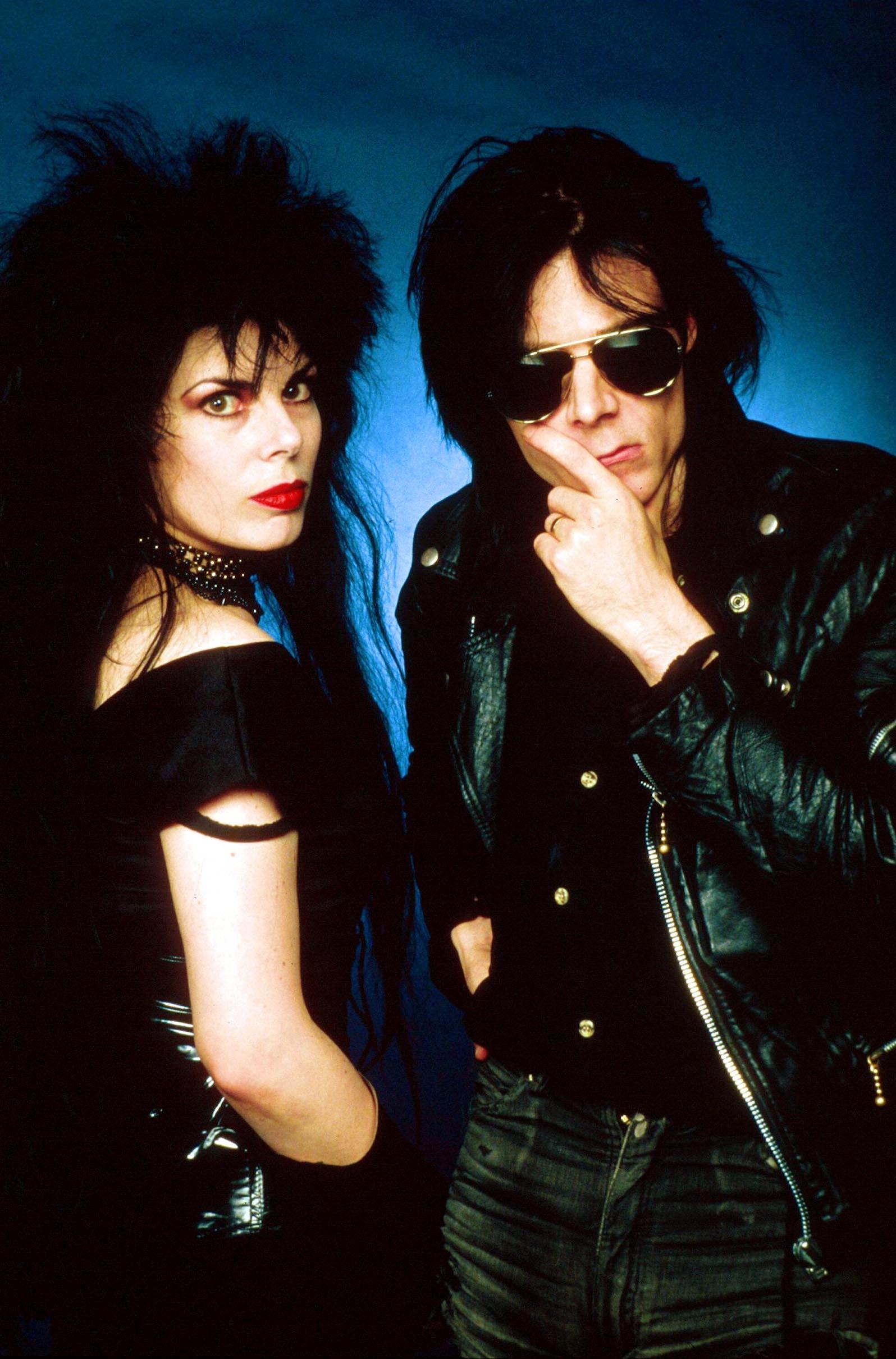
For the second Sisters Of Mercy album Floodland, you worked with Jim Steinman – writer of Meat Loaf’s Bat Out Of Hell – on two songs, This Corrosion and Dominion.
People thought that with the second album we were completely Steinman-ised, but it’s untrue. This Corrosion is ridiculous. It’s supposed to be ridiculous. It’s a song about ridiculousness. So I called Steinman and explained that we needed something that sounded like a disco party run by the Borgias. And that’s what we got.
Did you actually like Bat Out Of Hell?
I’ve never listened to it. I know the song Bat Out Of Hell. It’s OK. But it’s not as good as Golden Earring’s Radar Love, is it? It’s not as good as (Don’t Fear) The Reaper by Blue Öyster Cult, or Edge Of Seventeen by Stevie Nicks, or Aerosmith’s Dream On.
Steinman produced This Corrosion. But he didn’t produce Bat Out Of Hell – Todd Rundgren did. Did you know?
No. But Jim is very good at getting budgets for stuff that requires big budgets. And he’s very good at organising choirs – all the stuff that constitutes icing on the cake. I didn’t realise that he paid no attention whatsoever to the cake until I worked with him. But the icing was always very shiny.
How did you relate to him on a personal level?
I loved the guy. He’s very articulate and very funny.
Floodland represented a huge leap from your first album in terms of scale.
Yes. I had a very clear vision for Floodland when I demoed it all in my flat in Hamburg. I can see albums rather than hear them. It’s a very coherent record and that’s what gives it a lot of its power.
At this stage, you brought Patricia Morrison into the Sisters.
I wanted somebody to play the bass and I’d seen her with The Gun Club. I was a big fan of that band.
But is it true that she didn’t play on Floodland?
That is true. I intended her to, but she didn’t make the cut. She was still a key part of the band’s visual identity in this period – on the album cover and in the videos. I didn’t have a band so I couldn’t go on tour. So I did a year of promo for the album, and it was nice to have somebody to answer half the questions and look pretty. Not that I didn’t look pretty in those days…
The video for Dominion – shot in a desert location, with you in a white suit – was all very Raiders Of The Lost Ark…”
Yes. And This Corrosion ended up being a poor man’s Blade Runner. I hated making videos. They’re a waste of money. I regarded them as so tangential. But it’s what the record companies swore blind they needed to sell records. So I just had fun with them. ‘Dear Record Company, we’ve decided that the next video, for no reason whatsoever, absolutely has to be made in Bombay.’ So, off we go to Bombay. That was Lucretia My Reflection. I’d never been to India and I wanted somebody else to front the money.
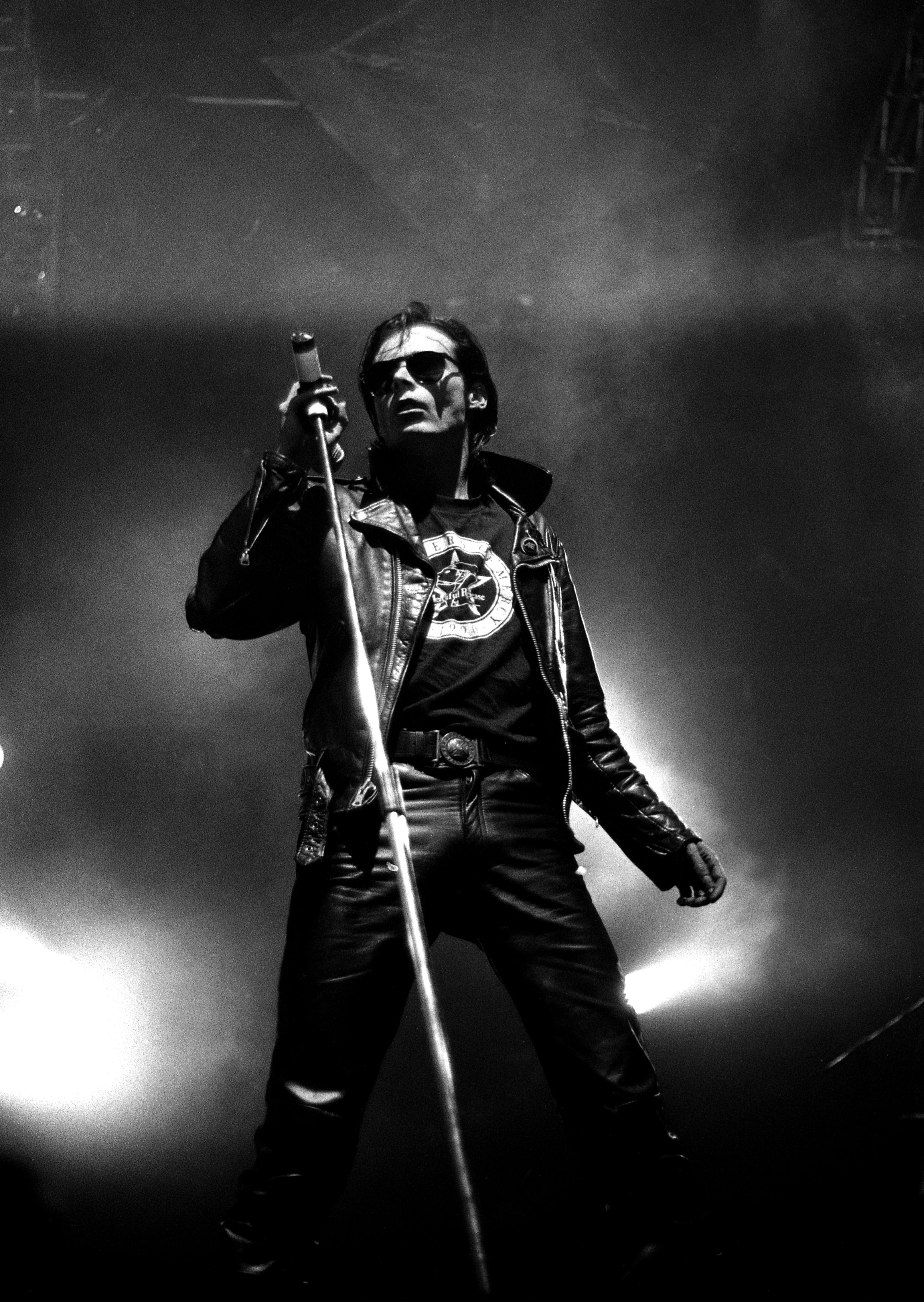
After Floodland came Vision Thing, which may yet prove to be the final Sisters Of Mercy album, unless you have a change of heart.
I’m very fond of that album. I know it’s a bit 2D, but I wanted to make a 2D rock record. I wanted something that chuntered happily along, and that was very flatly in your face. Floodland has got an awful lot of murky depths, and that’s fine, but I wanted much less of the murk on Vision Thing. There’s not even any reverb on the voice – it’s just me double-tracking myself. At the time everybody said, ‘Oh, you’re just trying to be Def Leppard – and you’re not doing it very well.’ To be honest, Def Leppard sound better. So that didn’t work.
Surely you weren’t really trying to sound like Def Leppard, though?
There’s one song where we were – Under The Gun, which was a brilliant power ballad. But by and large, we weren’t. And we lost an awful lot of airplay because that record was so guitar-heavy. Andreas Bruhn played guitar on that record, and he’s the only guitarist who’s ever come into the band thinking, ‘I’m going to play Classic Rock – with a big C and a big R.’ He should be in the Eagles, really. Maybe he is now…
After Vision Thing, you entered into a lengthy dispute with your record label, Time Warner, that effectively ended your recording career.
Everybody said, ‘You can’t survive as a band if you don’t put out albums – you’ve got to keep your record company.’ Twenty years later, I’m not so sure.
Your contract with Time Warner was terminated after you recorded an album of electronic music in 1997 under the name SSV – an album that was never released and was widely viewed as an act of sabotage. Is was rumoured that the full name of that project was SSV – NSMABAAOTWMODAACOTIATW – an acronym for Screw Shareholder Value – Not So Much A Band As Another Opportunity To Waste Money On Drugs And Ammunition Courtesy Of The Idiots At Time Warner. Is that true?
I couldn’t possibly comment. But I’ve yet to hear a better explanation. I own one Time Warner share, so I’m still entitled to go to their AGM and ask them what the fuck they’ve spent their money on.
As a statement about the music industry, SSV is reminiscent of the famous 1994 stunt by the K Foundation, when they claimed to have burned a million pounds.
Or so they say. But if it were me, I wouldn’t have felt the need to tell anybody about it. I would just have had a lovely private bonfire. And maybe there have been times in my career where, effectively, I’ve done just that.
In the 90s, you wrote for Germany’s Rolling Stone magazine, interviewing David Bowie and Leonard Cohen. Are they heroes of yours?
Very much so. Interviewing Leonard Cohen was a brilliant experience. I love being outclassed by people who have so much class. But there are a lot of people I admire. Stevie Nicks, Neil Young, Lee Hazelwood. I like a couple of Simon & Garfunkel tracks…
What about ABBA? Back in the 80s, the Sisters famously did a live version of ABBA’s Gimme! Gimme! Gimme! (A Man After Midnight).
It just seemed like a nice fun party song to trash. And we murdered it. It’s a very intricate song and we played it badly. The Sisters have a tradition of doing ‘give me back my man’ songs. One of the things I always fought for was my right to be a gay icon. And I’ve utterly failed, but it still doesn’t stop me trying. These days you can make an extraordinarily good living out of it. But when I was a kid it was a really big deal, and I just felt really sorry for all the people I knew who were obviously gay.
Are you embarrassed by any of the music you’ve made over the years?
Oh yeah – half of it. But we chose from the very beginning to grow up in public. We always tried our best to sound like us rather than anybody else. And sometimes that makes for dodgy sounding records. Them’s the breaks.
Have you heard the Sisters’ influence popping up in modern music?
Not directly. I was at a System Of A Down concert recently in Australia. I was watching from the side of the stage, and suddenly they launched into one of our songs – they did half of Marian – as a way of saying hello to me. I thought that was nice. I can’t hear our influence in their music, but stuff like that happens, whether it’s Guns N’ Roses wearing our T-shirts or Metallica standing up and fighting your corner for you.
How much contact do you have with fans?
Online – none whatsoever. At gigs, it depends if I’m in a good mood or not. If I am and I’ve got time, I might hang out in the foyer and have a chat, or I’ll go to a local bar afterwards and sit down with people.
Did you get any enjoyment out of being as famous as you were in the 80s?
The first time the Sisters were on Top Of The Pops, yes. I’d grown up with Top Of The Pops, so that was like an Oscar to me. But we were on that show so often, it got to be a drag. And we always seemed to be on when Shakin’ Stevens was on. We’ve been called a lot of things – usually, something that I heartily disagree with – but we’ve not often been called a pop band, and we were on Top Of The Pops a lot.
What is the biggest myth about you?
People think that I live in a Bavarian castle surrounded by bats. But no: I’m surrounded by a great many computer screens and I like to watch suspect Japanese films and listen to cricket all day. Test Match Special is so good.
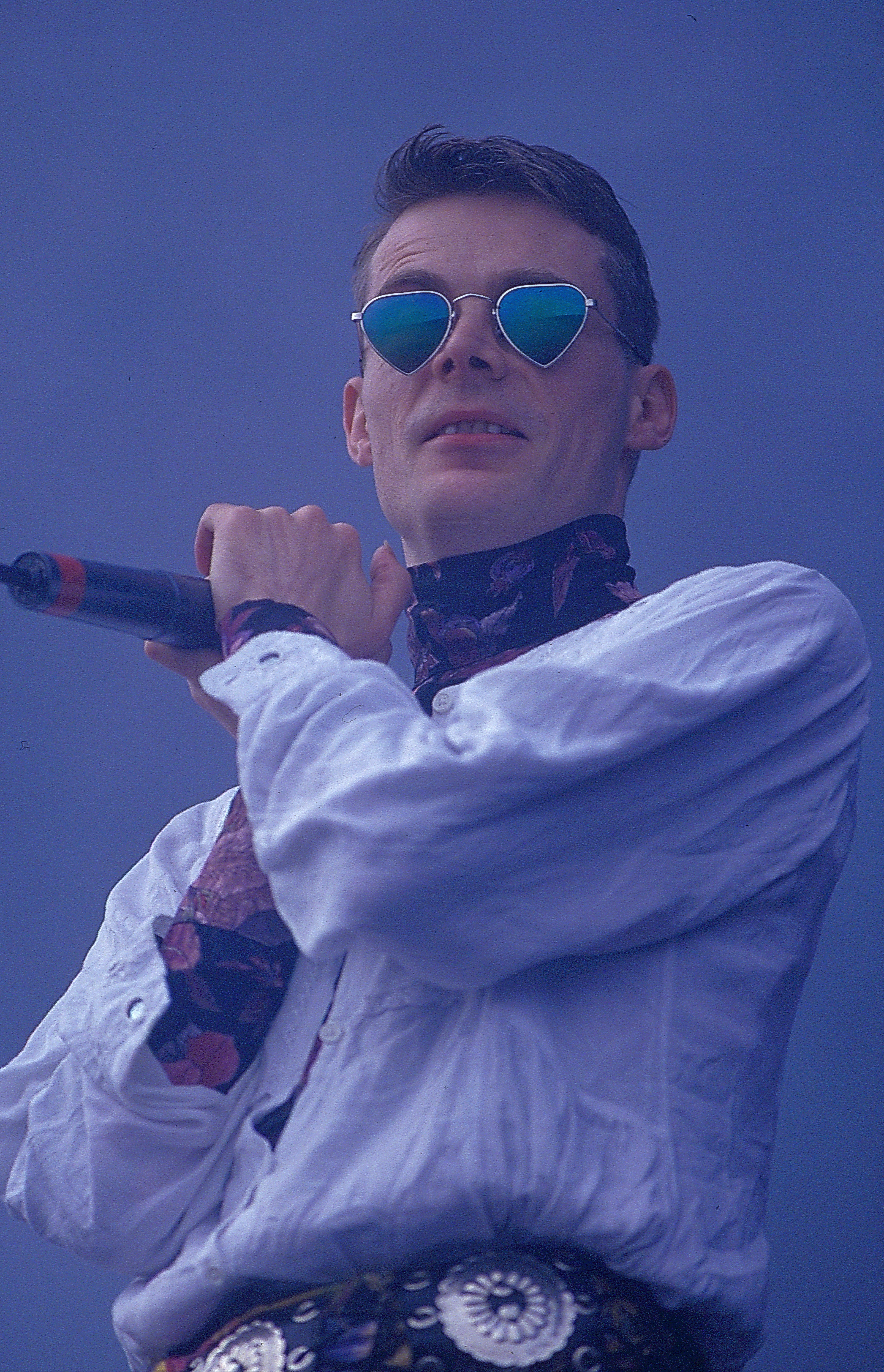
You’re not really a ‘people person’, are you?
Being in the public eye makes me uncomfortable. Being in crowds makes me uncomfortable. Loud noises make me jump.
With that in mind, how on Earth did you ever become a rock star, Andrew?
I have a theory that anybody who wants to be in a rock band probably shouldn’t be allowed to be in one. And anybody who’s really good at being in a rock band should be viewed with suspicion. But I think my terror manifests itself in a very entertaining way. And that has afforded me a very comfortable life when I’m not on stage, so I can live with the compromise. I made the pact.
The Goth Rock Quiz: how well do you remember the golden age of goth?
